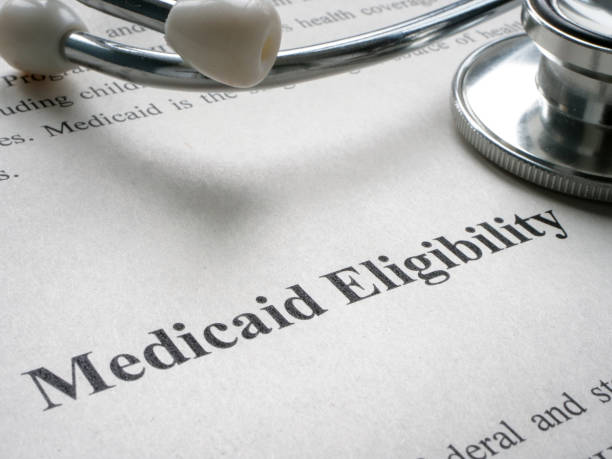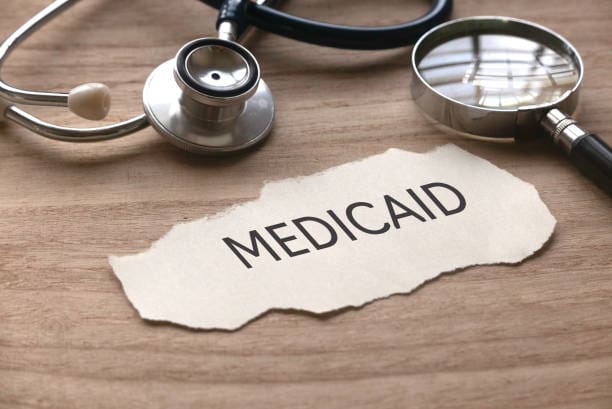How the New Medicaid Eligibility and Enrollment Rule Will Help Low-Income People with Disabilities and Older Adults Get Enrolled and Stay Enrolled
CMS’s recently released final rule, Streamlining the Medicaid, Children’s Health Insurance Program, and Basic Health Program Application, Eligibility Determination, Enrollment, and Renewal Processes could be a game-changer for promoting continued eligibility and enrollment in insurance affordability programs such as Medicaid and the Children’s Health Program (CHIP). Older adults, people with disabilities, and people of color face more administrative burdens and barriers to accessing care and coverage than other low-income adults, and thus, they are more likely to lose coverage. These burdens include onerous application and documentation requirements to prove eligibility, communication barriers such as long call-center wait times, restrictive requirements to provide duplicative documentation, and lack of follow up from relevant agencies. In the year since Medicaid restarted eligibility renewals after the Public Health Emergency, an estimated 71% of people who lost coverage lost it due to administrative barriers rather than a clear determination of ineligibility.
This new rule will eliminate some administrative barriers that hinder continuation of coverage and strengthen transfers of coverage between insurance affordability programs. Beginning this June, states must adopt a plan that includes processes for facilitating transfers between Medicaid, CHIP, Marketplace coverage, and Basic Health Programs (BHP). The plan must ensure that individuals stay covered when they become ineligible for one program but may be eligible for another program. For example, Medicaid must accept determinations of eligibility for certain individuals coming from CHIP, BHP, or Marketplace coverage and transfer them into Medicaid coverage without requiring an additional application. Likewise, CHIP and BHP must accept eligibility determinations made by a state Medicaid agency and simplify transitions into those programs for all eligible individuals. For those who are Medicaid-eligible on the basis of disability, the rule requires state agencies to accept verifications of certain eligibility information from CHIP and BHP and to process a disability determination no later than 90 calendar days upon receiving the case file transfer.
The rule also adjusts the way states are required to count home and community based services (HCBS) and other “constant” or “predictable” medical expenses for the purposes of determining eligibility in a medically needy eligibility pathway. Under current rules, individuals receiving HCBS cannot count personal care services, prescription drugs, or other recurring expenses as part of the “spend-down” required to maintain Medicaid coverage. As a result, individuals who require these types of services often churn in and out of Medicaid coverage, losing and then regaining coverage. This new provision, which goes into effect on June 6, 2024, allows states to change what counts against the spend-down requirement to preserve access to Medicaid for those receiving HCBS.
Finally, beginning in June 2027, the rule will extend timelines for enrollees to provide information, require states to renew eligibility with reliable information already available, and actively reach out to enrollees whose address or contact information changes. The high rate of recent procedural disenrollments resulted from eligible individuals not meeting deadlines or not receiving information due to misdirected contact attempts. The final rule addresses this issue by implementing a “good faith effort” requirement, in which states must:
- contact enrollees when the state receives information (either via returned mail or otherwise) that the enrollee has moved;
- confirm the enrollee’s new address using reliable information or reach out to the enrollee via multiple means of contact; and
- use reliable information (such as Medicaid managed care plan information, data available in the state’s Medicaid Enterprise System, or the USPS National Change of Address database) to verify address or income before requesting information from an individual.
The rule also extends timelines for individuals to respond to agency communications. No later than June 2027, states must allow enrollees at least 15 calendar days to respond to requests for information, at least 30 calendar days to respond to renewal requests, and at least 90 calendar days to request reconsideration following a notice of termination of coverage.
We are pleased to see these changes finalized. This rule, along with the September 2023 Streamlining Medicare Savings Program Eligibility Determination and Enrollment final rule, remove unnecessary barriers to coverage and require states to improve enrollment procedures for individuals who qualify for Medicaid programs that help cover Medicare cost sharing and premiums. For a detailed explanation of the provisions contained in both rules, NHeLP has published a resource, , that provides analysis and a quick-reference chart of the major new provisions
The post How the New Medicaid Eligibility and Enrollment Rule Will Help Low-Income People with Disabilities and Older Adults Get Enrolled and Stay Enrolled appeared first on National Health Law Program.






